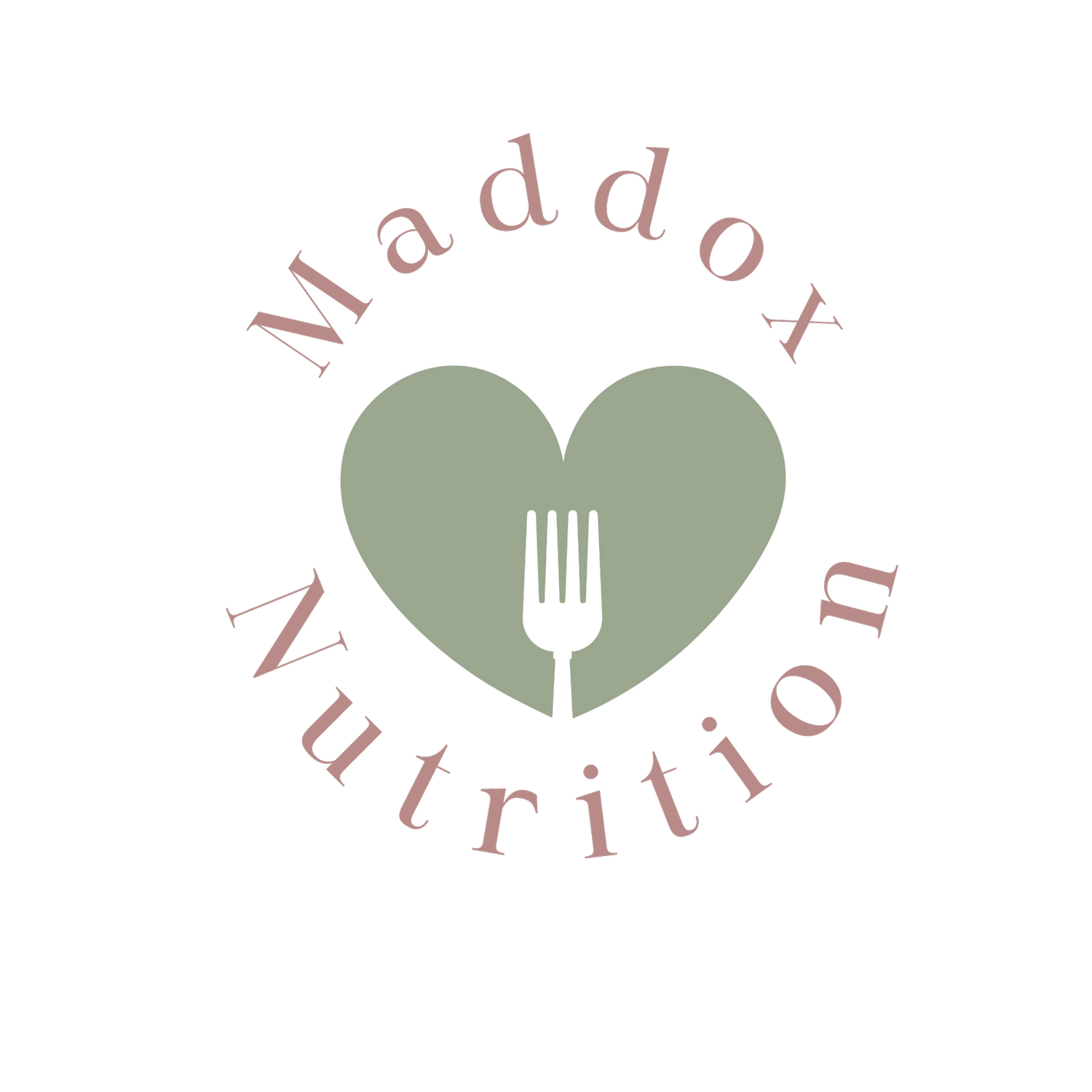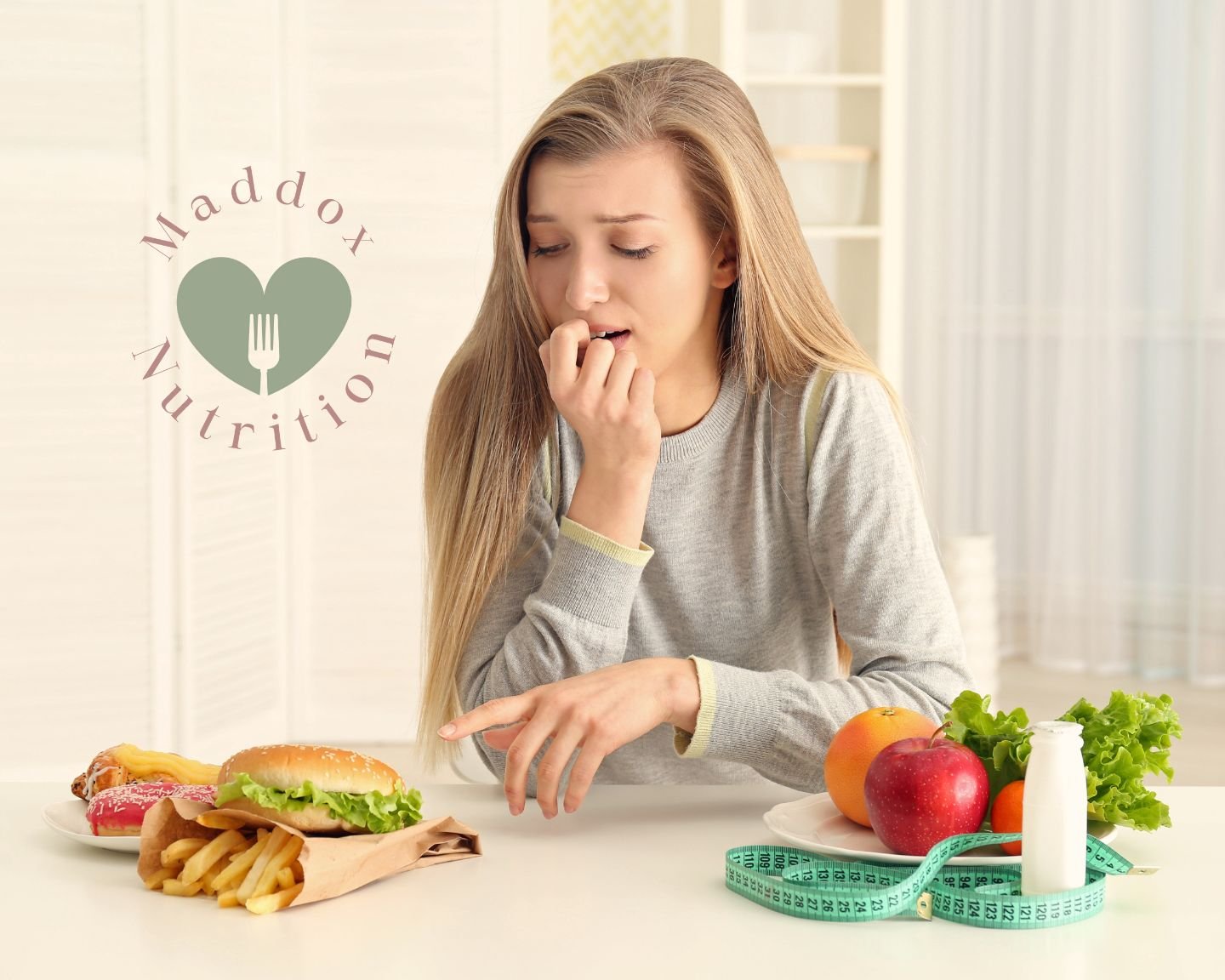Why Dieting Is Unhealthy and a Factor for Disordered Eating
Is the New Year’s diet really worth it? Dieting is a top risk factor for the development of disordered eating or a diagnosed eating disorder.
With the dawn of the New Year, it's not uncommon for diet plans to up their marketing ante and find new ways to draw consumers back into the dieting game. Add to this the plethora of nutrition/wellness noise all over social media (which is often just diet culture in disguise) and, of course, you might feel confused about how to prioritize your health.
Whether you're personally wrestling with the diet noise right now, or you want to be more equipped to educate those in your life who are still on the diet rollercoaster, here's the number one diet risk to be cautious of.
How dieting leads to disordered eating
Even well-intentioned dieting can snowball into patterns that harm your mental, emotional, and physical well-being.
What starts as “healthy” can quickly turn harmful
What starts as a pursuit of health or weight loss can easily spiral into patterns that harm your relationship with food, your body, and your mental well-being.
Over time, these patterns can escalate into binge eating, preoccupation with weight, or a cycle of yo-yo dieting, all of which are hallmarks of disordered eating.
Additionally, dieting disrupts the body's natural hunger and fullness cues, making it harder to trust and respond to internal signals. This disconnect can foster anxiety around food choices and diminish overall well-being.
Focusing on sustainable habits, intuitive eating, and fostering a positive relationship with food can help break free from the harmful effects of dieting and support long-term health—without the risks.
Dieting disrupts your body’s natural rhythm
Dieting might seem like a harmless way to pursue health or weight goals, but research shows it can increase the risk of developing disordered eating behaviors.
Our bodies are hardwired with God-designed hunger and fullness cues, but dieting disrupts these natural cues, making it harder to trust and respond to internal signals.
Over time, these behaviors tend to:
Trigger feelings of guilt when you “break the rules”
Fuel a constant preoccupation with food and weight
Increase stress, anxiety, or even shame around eating
Difficulty recognizing true hunger and satisfaction
Anxiety or second-guessing around food choices
Loss of confidence in your ability to eat “normally”
Reduced energy, mood, and concentration due to undernourishment
This disconnect can foster long-term disordered eating behaviors and diminish overall well-being. Dieting and disordered eating are more closely linked than most people realize.
The hidden danger of diet culture (especially for Christians)
As Christians, it's especially important to recognize that dieting can interfere with the God-designed cues He gave us, which are our biological and psychological responses to hunger, fullness, and satisfaction.
When we ignore these cues, we lose touch with the body’s natural wisdom.
Dieting also creates a significant barrier to the enjoyment and pleasure that God intended for us to experience with food. Instead of being grateful for nourishment, meals can become a source of stress, guilt, or control.
We believe in a faith-based approach to food and body image that honors the body as God created it, worthy of care, respect, and trust.
Christian women in particular may benefit from working with a Registered Dietitian for disordered eating who understands both nutritional science and biblical values.
Better non-diet resolutions that support the whole you
Instead of chasing unrealistic diet goals, consider these sustainable, life-giving habits that promote health without restriction or guilt.
Build a balanced relationship with food. Allow space for all foods, notice how they make you feel, and let go of “good vs. bad” thinking.
Practice gentle nutrition that supports your energy and mood. Nourish your body with regular meals that help you feel strong and clear-headed, without needing to follow strict plans.
Focus on body respect and self-compassion. Treat your body with care, even if it doesn’t look the way you think it “should.”
Engage in joyful movement. Exercise doesn’t need to be intense or punishing to be beneficial. Find activities that are enjoyable and motivating for you.
Create a sustainable grocery and meal planning routine. Reduce daily stress by planning meals that meet your needs and fit into your life.
Move toward peace with your body. Work on acceptance and appreciation rather than criticism. Body image work is a process, and kindness goes a long way.
These non-diet New Year resolutions support long-term well-being and reduce the risk of developing disordered eating.
Need help letting go of dieting? We’re here for you
Whether you're beginning your recovery journey or looking to optimize your health without the obsession, now is the perfect time to connect with a Registered Dietitian. Together, we can create a plan that aligns with your goals and values!
Insurance coverage
We're in-network with all of the following insurance companies:
Anthem/BlueCross BlueShield
UnitedHealthcare
Aetna
Cigna
Plus, we can submit for out-of-network benefits or provide a “superbill” for possible reimbursement from your insurance company.
Did you know it’s not uncommon to have 100% coverage (AKA free) on nutrition sessions?
Ready to finally enter the new year by having peace with food and your body? My team helps Christian women heal their relationships with food and their bodies WITHOUT dieting or disordered eating.
Dieting is a risk you don’t have to take
Dieting and disordered eating often go hand-in-hand. But you don’t have to fall into that trap, especially not because it’s January and the world is telling you it’s time for a “new you.”
You are already enough. Your body is not a problem to be fixed. And health doesn’t come from restriction, it comes from nourishment, movement, rest, connection, and grace.
This year, choose a different path. Choose one that respects your body, supports your mind, and aligns with your faith.
—
What you need to know
The difference between a Dietitian and Nutritionist
A dietitian is a regulated healthcare professional who has completed formal education in nutrition and dietetics, undergone supervised training, and is licensed to provide medical nutrition therapy for conditions such as diabetes, eating disorders, or gastrointestinal issues.
The title “dietitian” is legally protected in many countries, ensuring that only those who meet strict professional standards can use it.
In contrast, the title “nutritionist” is not always regulated, meaning anyone can call themselves a nutritionist regardless of training, though some may hold advanced degrees or certifications. Generally, dietitians are qualified to offer clinical nutrition care, while nutritionists often focus on general wellness and healthy lifestyle guidance.

